A lull in the racket and brattle,
And a lark soars into the light
And its song seems the voice of the light
Quelling the voices of night
And the shattering fury of battle.
But again the fury of battle
Breaks out, and he drops from the height
Dead as a stone from the height
Drops dead, and the voice of the light
Is drowned in the shattering brattle.
And a lark soars into the light
And its song seems the voice of the light
Quelling the voices of night
And the shattering fury of battle.
But again the fury of battle
Breaks out, and he drops from the height
Dead as a stone from the height
Drops dead, and the voice of the light
Is drowned in the shattering brattle.
Contributed by Bartleby - 2010/12/30 - 10:25
×
![]()
Note for non-Italian users: Sorry, though the interface of this website is translated into English, most commentaries and biographies are in Italian and/or in other languages like French, German, Spanish, Russian etc.

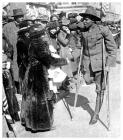
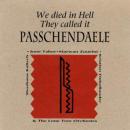


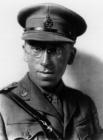
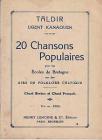
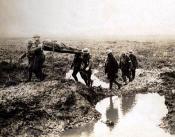
Dalla raccolta “Battle” Wilfrid Wilson Gibson fu ufficiale di sua maestà, ma non combattè in prima linea e neppure lasciò mai l’Inghilterra. Eppure gran parte delle sue poesie di quel periodo descrivono le atrocità della guerra dal punto di vista del soldato semplice mandato a crepare. Anche dopo la guerra Gibson mantenne nelle sue opere un’attenzione particolare per coloro che, anche in tempo di pace, sono troppo spesso i vinti, i fregati, comunque vada…
Musica di Philip Napier Miles (1865-1935), musicista, compositore e filantropo inglese, dal ciclo per voce e pianoforte intitolato “Battle, Ten Songs” (1917), interamente basato su poesie di Gibson.